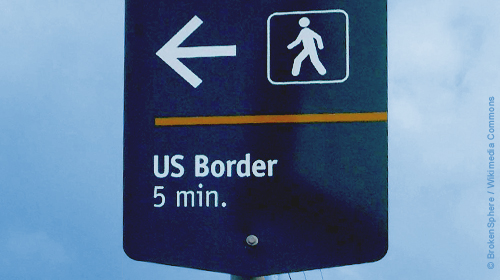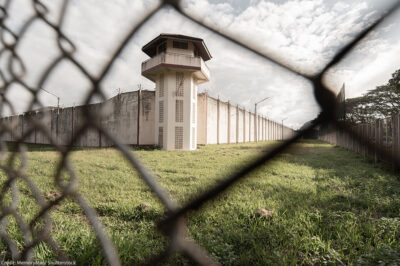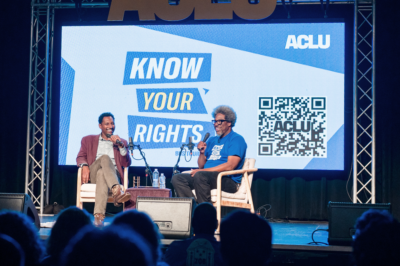
Border Patrol agents work in dangerous situations which can lead to tragic consequences like the shooting death and wounding of agents in Arizona this week. There is no justification for such violence targeting law enforcement officers. Yet there is also a crisis regarding use-of-force by Customs and Border Protection that is severely damaging the agency’s integrity (CBP is the Border Patrol’s parent and includes officers who work at ports of entry). The many recorded incidents of CBP fatalities and abuses demand a comprehensive, independent investigation of CBP policies and practices, as requested by members of Congress, the Inter-American Commission on Human Rights, and the Office of the United Nations High Commissioner for Human Rights. A permanent, arm’s-length oversight commission for CBP must also be created.
It’s not every day that the President of Mexico implies that an American law enforcement agent committed criminal homicide. This past weekend, the Wall Street Journal asked “how many Americans have heard of Guillermo Arévalo Pedroza? He was killed [in September] by a bullet fired from a U.S. Border Patrol boat while picnicking with his wife and two young girls on the south side of the Rio Grande, near Laredo, Texas. ‘Nothing happened in the legal institutions of this country,’ [Mexican President] Calderón says with evident restraint, noting that another 14 Mexicans have been killed in roughly similar ways this year alone. ‘This father was not trying to cross the border, he was trying to pass a good day with his kids.’”
The Border Patrol agents claimed rocks were being thrown at them from the Mexican side of the Rio Grande, although “[a] video posted online by a Nuevo Laredo news organization showed the shooting, but didn’t show any rock throwing.” Reports from Laredo are that Mr. Arévalo died in the arms of his 9-year-old daughter. Disputed facts aside, a cross-border shooting seems an inappropriate and unnecessary escalation of force.
Fatal Border Patrol shootings have occurred with dismaying frequency; others reported extensively include Juan Pablo Pérez Santillán (near Brownsville, Texas on July 7, 2012); U.S. citizen Carlos Lamadrid, 19, shot in the back three times while allegedly fleeing to Mexico (near Douglas, Arizona on March 21, 2011); and 15-year-old Sergio Adrián Hernández Guereca (near El Paso, Texas on June 7, 2010).
CBP can’t ignore systemic use-of-force problems because of pending confidential investigations into individual cases. The agency must instead engage with the public and make clear whether or not it abides by best law enforcement practices, such as training agents to prioritize de-escalation techniques and equipping agents with protective gear that reduces their risk of injury and corresponding need to use potentially deadly force. Moreover, CBP should explain in detail what disciplinary actions it takes for violations of use-of-force policies and what plans it has to install officer, hold room, and dashboard-mounted cameras to record its operations. If CBP use-of-force policies and investigation protocols differ from best practices, these differences must be publicly justified.
CBP’s credibility is on the line: while the agency stays the course of silence its questionable use-of-force cases keep accumulating. Last weekend, in San Diego, an American citizen mother of five was shot dead by a plainclothes Border Patrol agent. The Border Patrol’s public reaction is that the agent “was carried several hundred yards [on the hood of the car] before he discharged his weapon through the windshield of the vehicle.” Multiple published witness accounts contradict this version of events; for example, “[w]itness Ashley Guilbeau told KMFB-TV that the plainclothes agent walked toward the front of the car shooting ‘about 12 times’ without identifying himself: ‘Without her even able to say a word, I didn’t hear anything, [he] just came across and just shot at the windshield many times.’”
Earlier this year, PBS’s Need to Know featured the death in May 2010 of Anastacio Hernández Rojas, who left behind a widow and five U.S.-born children in San Diego. PBS obtained eyewitness video of what are alleged to be five Tasings by CBP officers of a man handcuffed and surrounded by about a dozen agents, one of whom appears to have his knee on the man’s neck. The words “quit resisting” are heard over the prone man. The coroner’s office classified Mr. Hernández Rojas’s death as a homicide, noting in addition to his heart attack: “several loose teeth; bruising to his chest, stomach, hips, knees, back, lips, head and eyelids; five broken ribs; and a damaged spine.” CBP’s version of events described a “combative” person: force was needed to “subdue the individual and maintain officer safety.” It took two years – and PBS’s broadcast of the video – for a grand jury to be convened.
Americans don’t know what really happened in any of these cases. The ACLU is certain, however, that use-of-force incidents like those described must not be swept under the carpet without full CBP transparency. CBP proudly declares itself to be the largest law enforcement agency in the United States; that mantle carries responsibility to be accountable to the American public.
Learn more about immigration and customs enforcement: Sign up for breaking news alerts, follow us on Twitter, and like us on Facebook.




